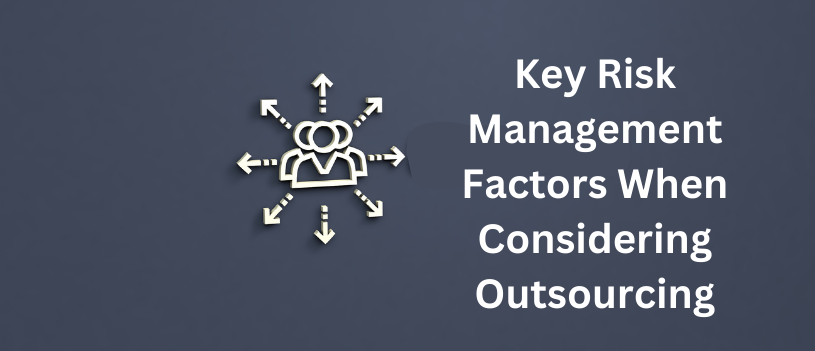As small business owners, we face numerous challenges in our quest for success, and one of the critical areas that requires careful attention is risk management.
When it comes to attracting and retaining talent, managing workloads, and maintaining client relationships, you may find yourself considering outsourcing, especially since finding ideal candidates has become more difficult in recent times.
If you have had difficulty finding employees and can have staff work remotely, outsourcing may be top of mind for you. Before moving ahead, be sure to review some key considerations to protect your business.
Security
Be mindful of the added security measures you’ll want to install due to sharing your business information with third parties. Talk to an IT professional to assess whether your existing infrastructure is sufficient or if it requires enhancements.
Compliance and Regulation
Different rules and regulations apply to outsourcing, depending on whether you choose domestic or international workers. Identify and understand the specific regulations that apply to your chosen option. Be careful to abide by all legal, professional, and regulatory standards throughout the relationship.
Client Implications
Evaluate if there are any reputational risks associated with outsourcing the work. Clients may be concerned that someone outside of your company is seeing their information. Ask clients if they would be willing to pay higher fees to maintain in-house staff if they are not comfortable with the idea of an outsourced solution. Maintaining open communication and addressing any concerns proactively can help foster trust and transparency.
Processes
Identify the specific processes, documentation, dependencies, and training required for a successful working relationship with an outsourced worker. It’s crucial to ensure the services align with your established processes and meet quality standards. Properly documenting these processes and providing thorough training to those supporting your business will contribute to a seamless integration.
Insurance
Insurance coverage is essential before finalizing any outsourced arrangement. Consult with your insurance carrier to understand any implications and ensure that you have adequate protection against potential risks and liabilities that may arise during the relationship.
Confidentiality
If you have sensitive information within your company, you must safeguard the confidentiality of your clients’ records.
State-specific Requirements
Each state may have disclosure restrictions on outsourcing. Familiarize yourself with these requirements to ensure compliance and avoid potential legal issues.
If you are considering outsourcing, whether domestically or internationally, inform yourself of the rules and risks associated with doing so . Prioritize risk assessment and liability considerations, seeking expert advice as needed. When needed, communicate with your clients about your outsourcing practices to build trust and reduce potential liability exposure.
By doing your research and taking proactive measures, you can make informed decisions about outsourcing allowing you to hire the staff you need while protecting your business.
